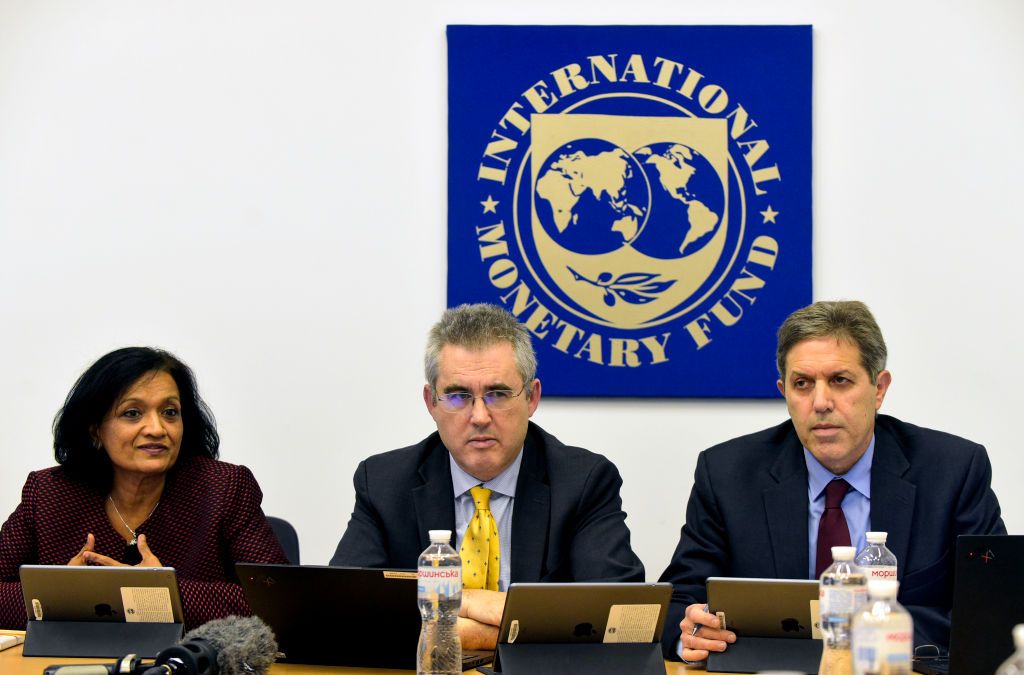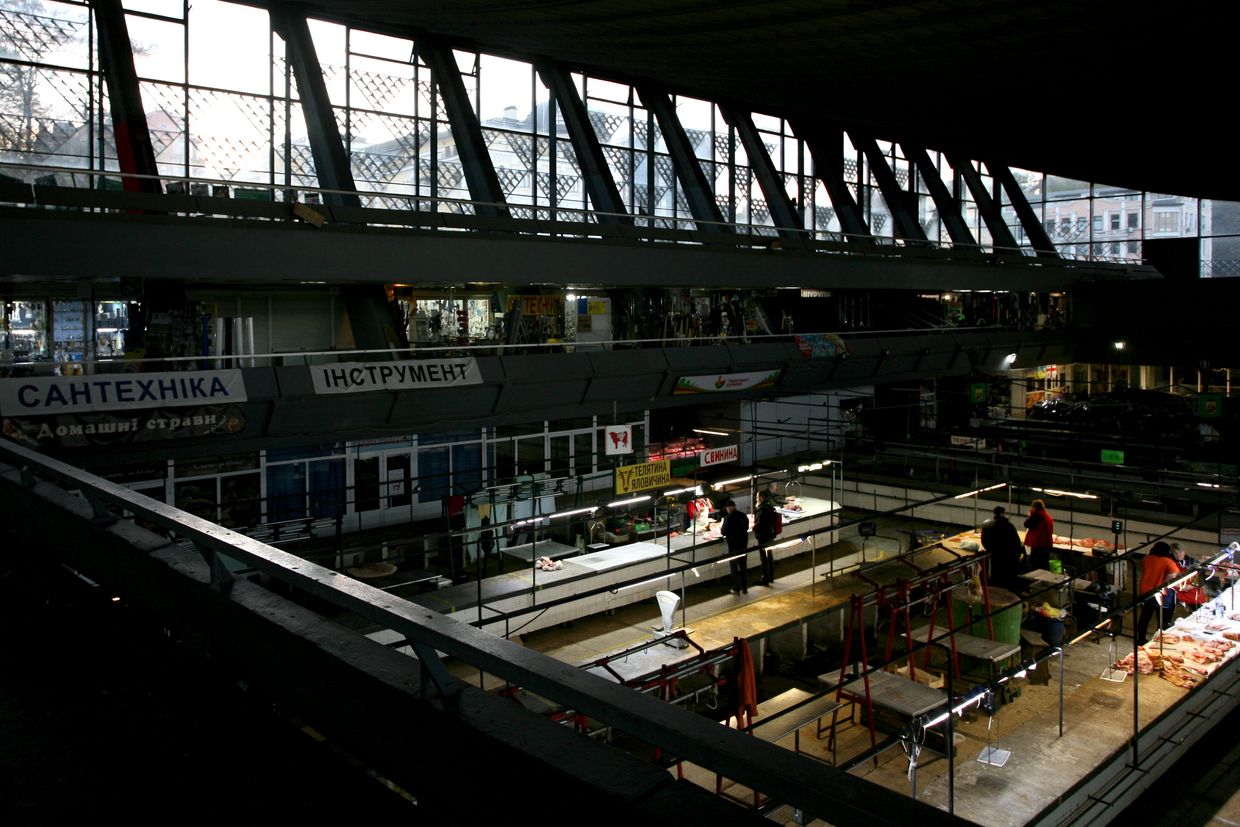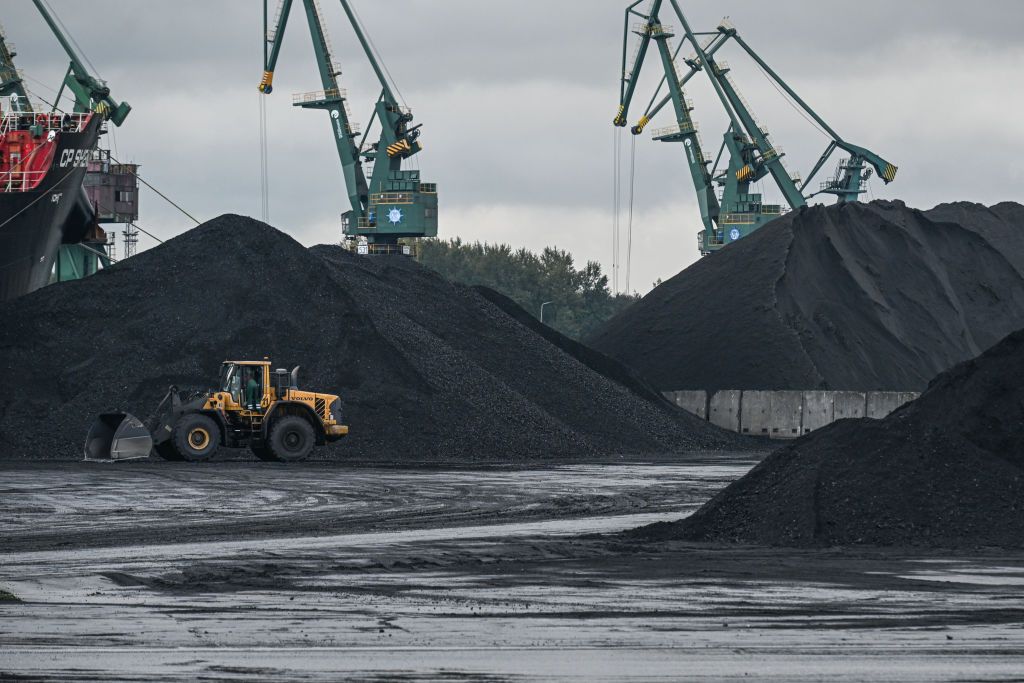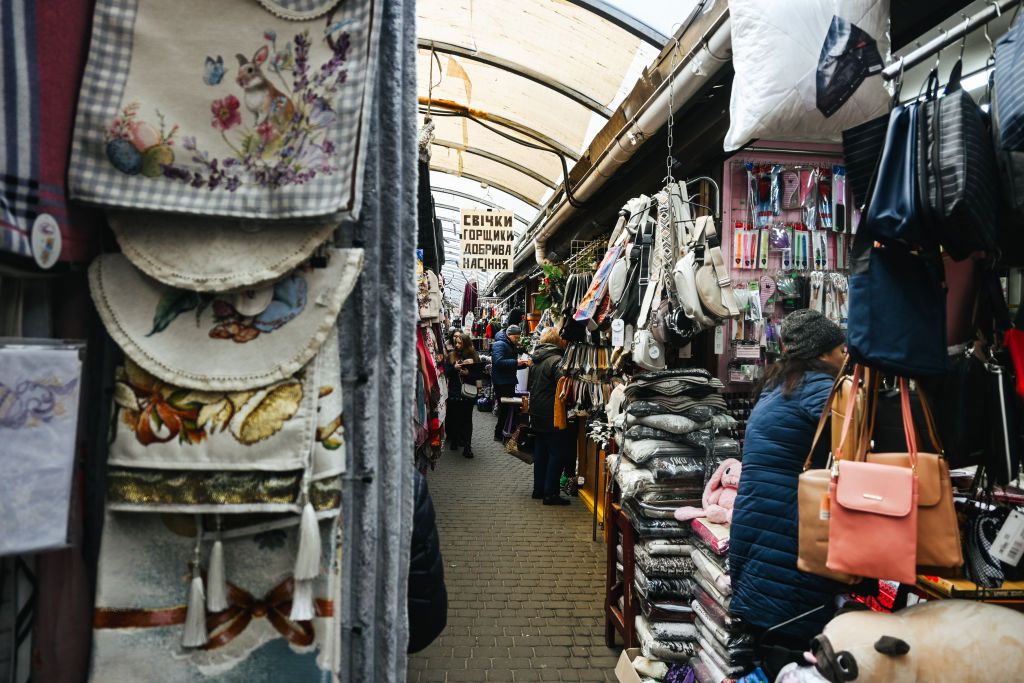International Finance Corporation Europe Director ‘optimistic’ Ukraine can attract private investment to rebuild

In order to rebuild the country following Russia’s brutal invasion, Ukraine will have to attract billions to its private sector.
The International Finance Corporation (IFC) — the investment arm of the World Bank — believes that if Ukraine manages to reform some of its key sectors and liberalize its markets, it could raise $130 billion in private-sector investments, the IFC said in a report published in late October.
That number is roughly a third of the estimated $411 billion Ukraine needs to repair the damages caused by Russia’s war.
In a scenario where the country fails to make those reforms and stays the current course, the IFC thinks Kyiv will be looking at closer to $73 billion in private-sector investment.
In December last year, the IFC launched the $2 billion Economic Resilience Action (ERA) package for Ukrainian businesses. According to the IFC, there’s $1.8 billion in the pipeline, and another $570 million has been distributed.
The Kyiv Independent spoke with IFC Regional Director of Central and Eastern Europe Rana Karadsheh about the challenges of attracting investments to Ukraine at the moment, and what work still needs to be done to ensure the country can attract the funds it needs to successfully rebuild.
The Kyiv Independent: The IFC has already made $570 million in investments and earmarked $1.8 billion in total. How large, or small, are the investments?
Rana Karadsheh: The first and most important message is you have to support whatever opportunities are there to support the private sector, whether they're small or big. The more you do, the more you get visibility, the more other investors will see. And that lays the groundwork for more investments and then bigger ones.
The IFC has intervened across the economic spectrum. Most recently we've committed a loan of $130 million alongside the EBRD (European Bank for Reconstruction and Development) and the DFC (U.S. International Development Finance Corporation). That's a very large investment already in three institutions.
We've done larger tickets, we've done mid-sized tickets, and we've done smaller tickets. We've done them directly to companies. We've done them for trade by supporting, exporting, and importing critical goods. And then we've also worked with financial institutions to reach SMEs (small- and medium-sized enterprises).
We do this with the expectation of being repaid, with the expectation that these are viable industries at this time.
We're providing capital, not just to build confidence, but to support the private sector and these companies that are demonstrating extreme resilience and perseverance.
There are logistical challenges. You have working capital needs that have increased. There have been some damages. So the investment is to support them to continue operating. And in the meantime, you continue to build confidence.
The Kyiv Independent: Has it been difficult to find places to put the investments?
Rana Karadsheh: Well, yes and no. The IFC has invested in Ukraine for many years. We know the country and the clients. We have a good sense of the economy and what we do is emerging markets investments.
Once we announced our $2 billion ERA program, we sat down with each of our respective industries: financial institutions, infrastructure, the real sector, to say, okay, we really need to build and develop this pipeline of projects. And that's where the $570 million plus the $1.8 billion pipeline was developed.
Having said that, and what we've said as part of the ERA program, is that we do need to de-risk loans for a range of reasons.
As a prudent financial institution, there are reserves and how we manage provisioning and things like that. With that de-risking, you also stretch that dollar significantly further.
So has it been difficult? We've been able to identify the clients. We know the clients who we can work with. But to really move the program, we need to do this with partnerships and de-risking instruments.
The Kyiv Independent: Are investors hesitant?
Rana Karadsheh: Some are. That's why they're not all coming in now, but they're all engaged. We're engaging with a lot of investors, whether real sector or financial investors.
We’ve supported some that have come in to invest. Some are actively looking and some are waiting to see what materializes.
But that's what this de-risking pathway is intended to do. It is to give them visibility to make them more comfortable to come in.
The Kyiv Independent: Has the fact that people are now realizing that this war is going to be longer than initially expected changed calculations at all from the investment community?
Rana Karadsheh: Not really. It can vary and you can see differences in terms of your engagement.
I would say when the invasion first happened, regardless of whether investors thought it was going to be short or long-term, there was hesitation.
Now, there are those that are seeing the resilience of the country and of the companies. Those that are closer and know the country better tend to have a more engaged approach. Those that might be further away, may be watching more.
The engagement and the interest still remains, at least from the companies that we are talking with.
The Kyiv Independent: Are you optimistic that Ukraine can make the reforms needed to attract this 1.3 billion?
Rana Karadsheh: Of course! We wouldn’t be doing this if we weren’t optimistic.
The IFC has been doing this for a long time. We've seen well how each country is different and each economic disruption is different. You have to address it to the specific needs of the country. You can take lessons from what you've done before.
What I keep wanting to reiterate is that the (ERA) model does work. If you do it, investments will happen, and capital will come in.
Economic resilience will manifest itself. People will have jobs. People will want to come and they'll stay in their work.
It doesn't happen overnight. It's a very slow, very deliberate and consistent process. But it does happen. So yes, I am optimistic.
The Kyiv Independent: Are investors more positive about corruption following Kyiv’s anti-corruption efforts this year?
Rana Karadsheh: The government's doing quite a bit to help the legislation and the reforms and anti-corruption. They're not easy, they don't happen quickly, but you see the determination to address it.
The bank is very engaged in this. If Ukraine’s pathway is partnering with the EU, then (tackling corruption) is a necessity.
The government and companies do see this as an important part of the economic development of the country to support it.
The Kyiv Independent: Among the key sectors that the report laid out, what types of projects have proven to be most attractive and most interesting?
Rana Karadsheh: Agribusiness is very private-sector dominated in the country. So we were able to support agribusiness. I think there are opportunities there.
We are doing a lot of upstream work to support the infrastructure side. Infrastructure will probably take a little bit more (work) because it takes some preparatory work and there has to be continued reform there, but we think we can have near-term solutions.
Logistics will take a little bit longer. That's where the upstream and advisory work will come in to help support and lay the groundwork to identify where you can optimize private sector intervention in addition to the reforms mentioned (in the report).
We've invested $65 million in equity to support the tech sector. So that's another sector where I think there can be a lot of near-term opportunities.
The Kyiv Independent: What impact is the demographic decline having on attracting investments?
Rana Karadsheh: This is the challenge for private companies. Many of these companies need skilled labor. Some of them need a lot of it, like in agriculture, for example. So it is a challenge.
But I would also say that's precisely why we need to support the private sector because they're the ones that generate jobs. If people have jobs that allow them to sustain their families and their homes, they will be motivated to work and stay in the country.
That’s why we need to continue to support them so that we can help mitigate this as best we can.














